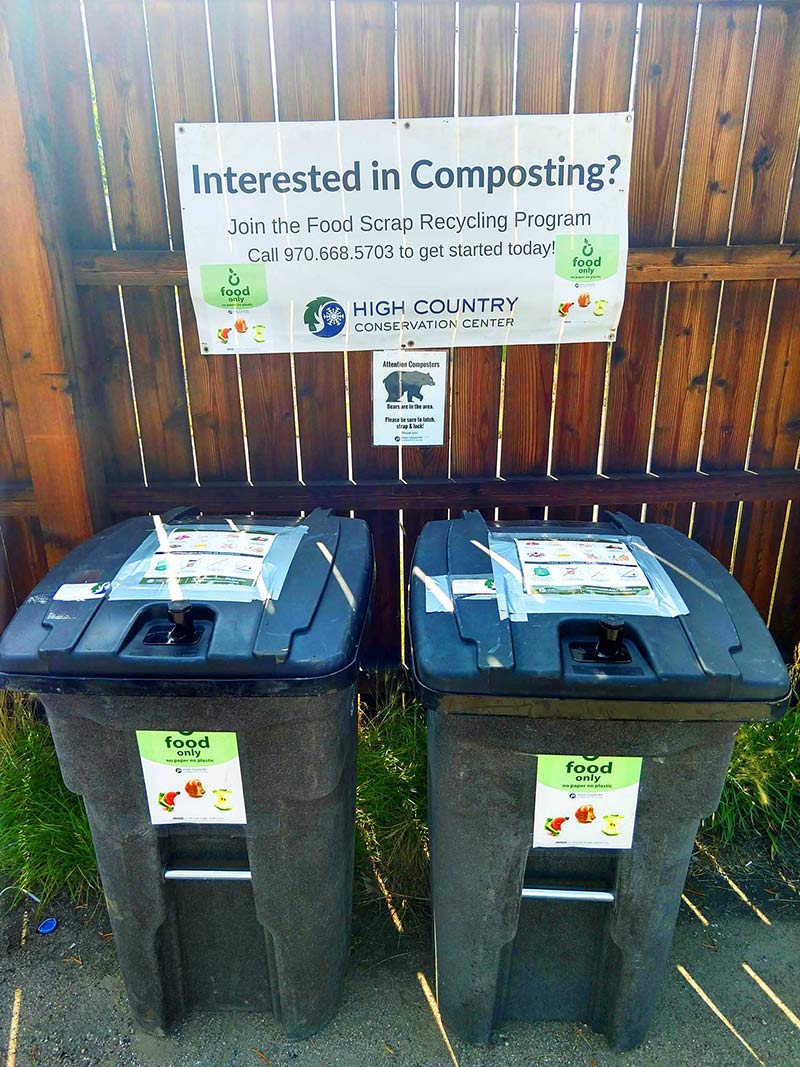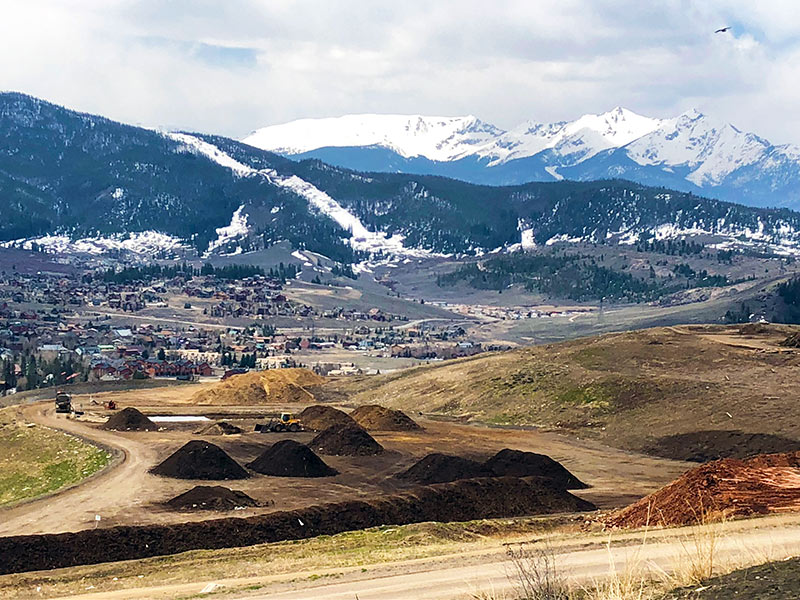
- Vitalii Homon
- September 8, 2018
- Ask Eartha
Dear Eartha, I’ve always wanted to compost, but I’m afraid of the smell and attracting wildlife. How can I get started? – Sara, Blue River
 Sara, this is such an important question. The U.S. government estimates that more food waste – 37 million tons annually – ends up in the trash than any other single material. And, even if you’re a kitchen whiz who’s really good at crafting creative meals from leftovers, all those coffee grinds, banana peels, and eggshells add up over time.
Sara, this is such an important question. The U.S. government estimates that more food waste – 37 million tons annually – ends up in the trash than any other single material. And, even if you’re a kitchen whiz who’s really good at crafting creative meals from leftovers, all those coffee grinds, banana peels, and eggshells add up over time.
When any kind of food – apple cores, uneaten leftovers or spoiled vegetables – ends up in the landfill, it produces methane, a greenhouse gas that traps 25 times more heat than carbon dioxide (and makes up 10 percent of U.S. greenhouse gases). I bet you can guess what kind of effect that has on climate change.
It sounds like you already know that composting creates a closed-loop system: uneaten food is turned into a valuable soil amendment which is used to grow more food. So, let’s go back to your original question.
Food Scrap Recycling
In Summit County, the easiest way to divert your food waste from the landfill is to participate in High Country Conservation Center’s Food Scrap Recycling program. It’s an easy, paid drop-off program that takes away all the commitment of backyard composting and lets you off the hook for attracting wildlife. In fact, you’re not even the one doing the composting. The Summit County Resource Allocation Park (SCRAP), also known as the landfill, does all the heavy lifting.
Once you sign up for the program, simply collect food scraps at your home – in anything from a countertop container to a sealed pail under the sink – and dump them at one of two centrally-located drop-off sites. From there, food waste is taken to the SCRAP, where it’s turned into a nutrient-rich soil.
One major benefit of this program is the variety of materials accepted. While backyard composters often avoid dairy, meat and even grains, materials accepted for food scrap recycling include all those things and much more: vegetables, seafood, bones, gravies, nuts, spoiled food, leftovers, fruit, processed foods – any food scraps you have!
However, paper and manufactured compostable items – like those corn-based plastic cups or bags – are not accepted. That means you’ll need to collect scraps directly in your home container, dump them into the bins and, depending on your tolerance for compost bucket smells, wash your container each time. No big deal of course, when you’re diligent about dropping off your scraps: at least once per week, or more if it’s convenient.
Also, be sure to get a container with a tightly-sealing lid. The internet offers up all manner of countertop and under-sink specialty compost containers, but you’ll be fine with a simple container or bucket, provided the lid seals tightly.
Forty percent diversion by 2035
 Currently, the Food Scrap Recycling program diverts more than 70,000 pounds of food waste from the county landfill each year. This is incredible! But as you can imagine, we can all do better.
Currently, the Food Scrap Recycling program diverts more than 70,000 pounds of food waste from the county landfill each year. This is incredible! But as you can imagine, we can all do better.
To put it in perspective, Summit County’s diversion rate – the amount of material we actually divert from the landfill – is just 23 percent: That’s below the state average and far below the national average of 35 percent.
To evaluate this dilemma, a Zero Waste Task Force convened multiple times in 2017 and 2018. The group, which was made up of a diverse group of local minds and interests, created a community diversion goal of 40 percent by 2035. Food scrap recycling is an essential part of meeting this goal.
How to get started
You can sign up for the Food Scrap Program for free at HighCountryConservation.org. Plus when you sign up, you can pick up a free compost bucket at the HC3 office.
Once you get started, you may be surprised by how quickly food waste adds up. You’ll feel good working toward Summit County’s community diversion goal and a lot less guilty when cleaning out the leftovers-turned-science experiments from the back of the fridge. And when it comes time for planting or landscaping, be sure to take advantage of affordable, high-quality High Country Compost!
Ask Eartha Steward is written by the staff at the High Country Conservation Center, a nonprofit organization dedicated to waste reduction and resource conservation. Submit questions to Eartha at info@highcountryconservation.org.
